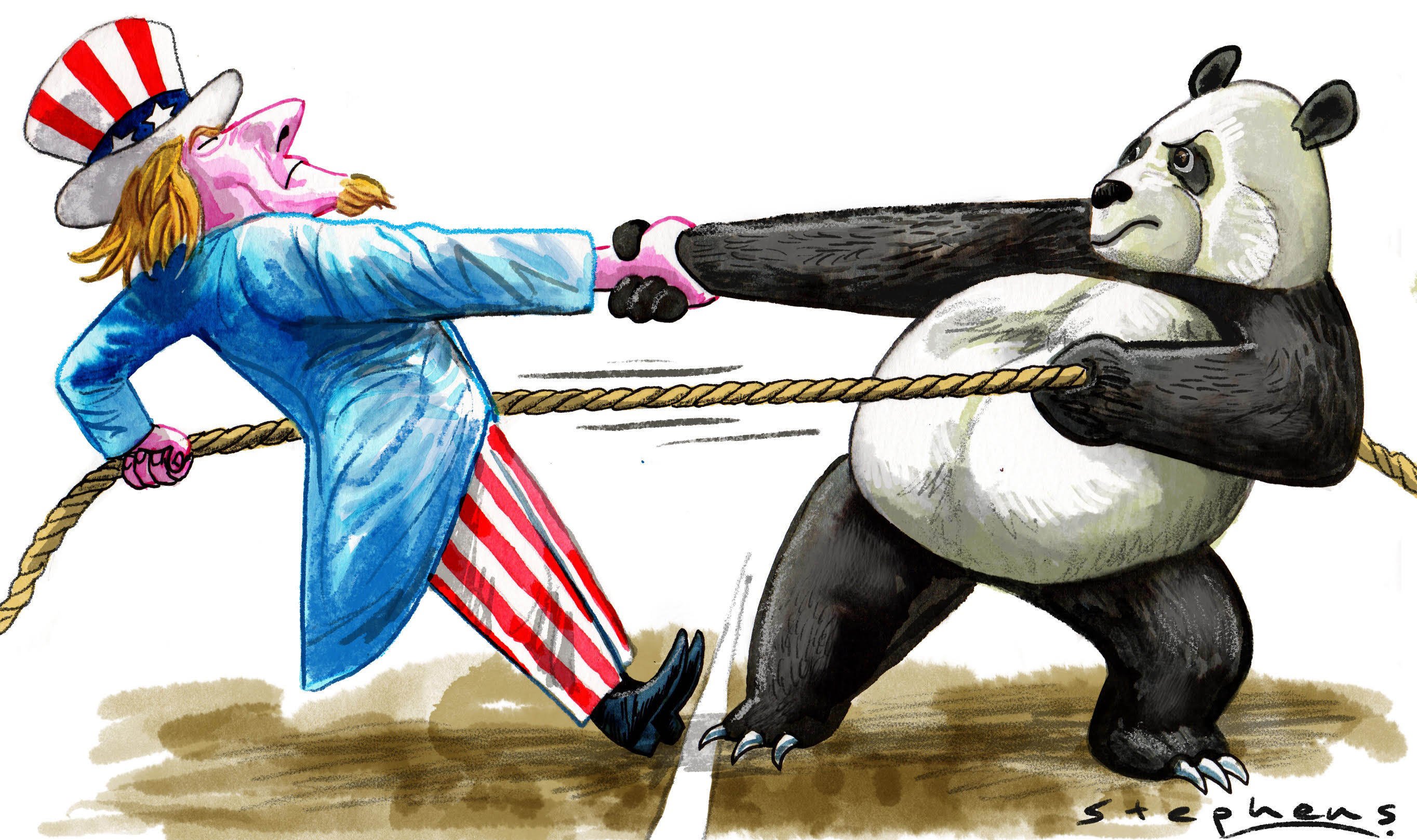Wang Huiyao: Biden’s national security strategy highlights paradox of US-China relations
SCMP | October 26 , 2022From SCMP, 2022-10-26
■ US-China collaboration in research and innovation will be critical to addressing climate change, pandemics and other challenges that no country can handle alone.
■ It is difficult to square the national security strategy’s avowed commitment to global cooperation on shared threats with its overriding emphasis on geopolitical competition, particularly with China.
Illustration: Craig Stephens
By Wang Huiyao | Founder of the Center for China and Globalization(CCG)
The author F. Scott Fitzgerald famously wrote: “The test of a first-rate intelligence is the ability to hold two opposing ideas in mind at the same time and still retain the ability to function.”
In the coming decades, as American scholar Graham Allison notes, the leaders of China and the United States will face something akin to this “Fitzgerald test” as they seek to navigate an increasingly fraught relationship.
On one hand, it seems inevitable that the two countries will be fierce competitors as both strive to be the biggest and best across a range of economic, technological and military arenas. On the other hand, unless they can cooperate in dealing with shared threats like climate change, both countries – along with the rest of the world – are doomed.
This tension between competition and cooperation permeates the bilateral relationship and remains an unresolved contradiction in US President Biden’s national security strategy, which was finally released last week.
First, it is welcome that the strategy recognises that shared challenges like climate change, food insecurity, pandemics and inflation are “at the core of national and international security and must be treated as such”. In the 21st century, no country can be truly safe unless it works with others to address such shared issues, which are not only a direct threat to national security, but also risk multipliers for geopolitical instability.
Biden’s strategy mentions “climate” around 65 times – a welcome change from the version issued by the Trump administration, which eschewed fighting climate change in favour of calls for energy dominance and fossil fuel production.
However, it is difficult to square Biden’s avowed commitment to global cooperation on shared threats with the overriding emphasis on geopolitical competition, particularly with China, which suffuses every section of the document.
China is an indispensable partner if the US is serious about tackling global threats like climate change. The two countries are the world’s largest economies, carbon emitters, and suppliers of clean technology. They are also the world’s two science superpowers, jointly accounting for about 40 per cent of global scholarly output and over one-third of the world’s 8.85 million research personnel.
China-US collaboration in research and innovation will be critical to addressing climate change, pandemics and other challenges that no country can handle alone. But these links are already suffering amid rising bilateral tensions. Last year, China-US co-publications fell for the first time and at least 1,400 US-based ethnic Chinese scientists switched their affiliation from US to Chinese institutions.
Biden is now escalating competition with China in science and technology – not only by investing in America’s capabilities, but also by actively trying to hold back China’s development, as seen in the recent sweeping restrictions on semiconductors.
Moves like this will surely only deepen the chill in bilateral cooperation at a time when we should be seeking closer integration between the vast science and research ecosystems of both countries to tap synergies and develop solutions to global challenges.
Actions like the semiconductor sanctions will not only affect China, which is the world’s largest buyer of chips. Bifurcating the market will also have a major impact on economies such as Taiwan, South Korea and Japan that supply components to mainland China, hurting profits, research and ultimately the development of an industry that is so crucial for growth and innovation.
More broadly, the US drive to pit democracies against autocracies, as laid out in the security strategy, does not resonate well in Asia and many other regions. It will work against the economic integration, prosperity and harmony that is required to mobilise joint resources and forge the inclusive global governance that is required to deal with our shared threats.
Biden’s strategy does pay lip service to the contradiction between its two stated priorities of shared challenges and geopolitical competition, proposing a “dual-track approach” that allows for cooperation with any country – including geopolitical rivals – and calling for “responsible competition” with China.
However, these remain abstract notions and there is little indication of how they can be realised in practice, or how the US hopes to promote global cooperation while pitting a select group of like-minded countries against others.
Thankfully, both sides still have the political will to work together, whatever their differences. In a press conference just before the opening of the Communist Party congress, senior official Sun Yeli said that the most important thing in international relations in the next 50 years would be “a right way” for the US and China “to get along”.
Last week, Secretary of State Antony Blinken reiterated that the US must not lose sight of the cooperative aspects of the relationship, recognising that problems like climate change and global health will be difficult to solve if the two nations are not engaged.
Biden’s new strategy highlights the question of how the US and China can cooperate and compete at the same time in a world of growing tensions. For now, the answer to that paradox remains a work in progress. Solving it will require creative statecraft by leaders up to the Fitzgerald test of juggling two seemingly contradictory ideas at the same time.
Recommended Articles
-

Wang Huiyao: Key lessons from China’s ascent over the past 25 years
-
Wang Huiyao: Key lessons from China’s ascent over the past 25 years
-
Wang Huiyao: China and Latin America: Partners in a shared new era
-
Wang Huiyao: Only a multipolar coalition can secure Ukraine peace
-
Wang Huiyao: How to Fix the Security Council
